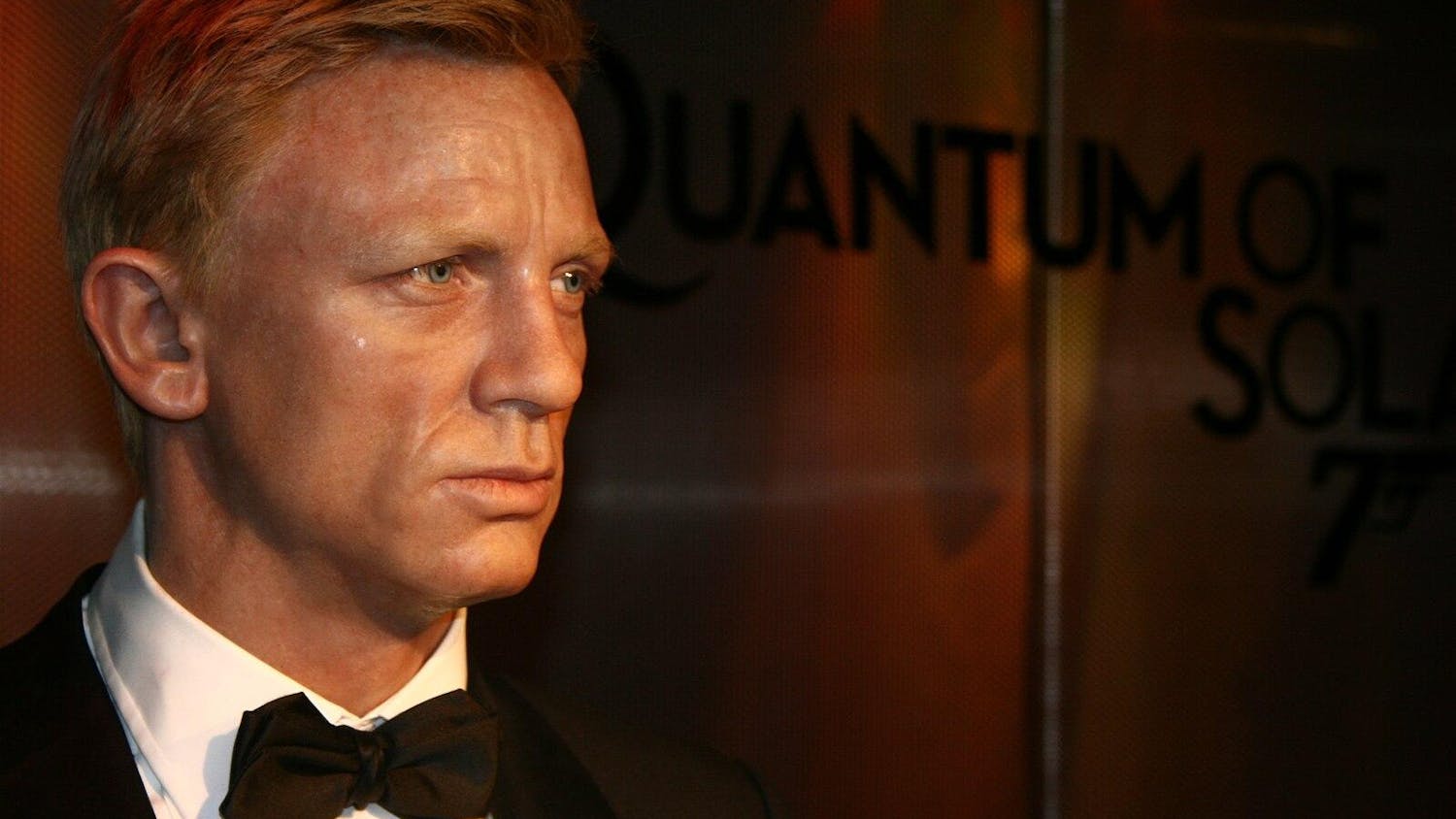There is no fiction and no flattery in Mark Bellison's world, just facts. Mark is Ricky Gervais' character in the new comedy, "The Invention of Lying," and, as the title suggests, the only person in his world who can tell a lie. The unfortunate truth is that the film only works for a while, and then takes a tragic dive into snide mockery.
Mark is introduced to the audience through the dulcet tones of Gervais' voiceover, outlining the premise and basic plot of the movie. Mark lives in a world in which humans haven't developed the ability to lie; they have no concept of truth and falsehood because neither is necessary. Gervais, in his English lilt, describes Mark as a loser, but a loser whose luck will soon turn. Mark is going to tell the world's first lie. "So look out for that," Gervais says.
The film's first half-hour, well paced and with sharp wit, is replete with laughs. The setup is clever, featuring a series of vignettes in which Gervais — also the film's writer — gets the most mileage out of the film's premise.
Mark goes on a date with Anna McDoogles (Jennifer Garner), a high-class beauty who is out of his league. The dialogue in these first scenes is an onslaught of stream-of-consciousness insults hurled almost exclusively at Mark. Just before he's fired at work, co-workers Shelley (Tina Fey) and Brad Kessler (Rob Lowe) inform Mark that they've always hated him and that he's a loser.
Gervais does a great job with the script, adhering to the film's premise and employing every aspect of the environment to craft a world in which there are no lies. Advertising is relieved of every trick of the trade, resulting in ads for Coca Cola with the slogan, "Coke: It's very famous." The arts, the grandest of lies, are reduced to what little can be produced in a world of absolute truth: a retelling of history. In a very meta joke, Mark works as a writer for a film company called Lecture Films whose tagline is "We film someone telling you about things that happened."
While the premise is funny, it soon proves tiring. Eventually the pacing slows down, burdened by a heavy twist after Mark's lies get out of hand; he uses his new skill to comfort his mother on her deathbed, essentially inventing the notion of heaven, and thus religion.
It seems inevitable that, when dealing with lies from a slightly controversial perspective, religion will come up, and while it's humorous for a while, even with the aid of clever sight gags like the Ten Commandments taped to pizza boxes, it soon loses steam.
"The Invention of Lying" gets bogged down by its bluntness. The people who inhabit the lie-less world start to seem less like innocent inhabitants of a strange world and more like deliberately dumbed-down followers. Suddenly morals begin to crystallize.
Even the casting is an exercise in utter transparency. Famous people were hired to do exactly what they're famous for. Garner, reprising her role from "13 Going on 30" (2004) plays Anna, the vapid waif with whom Mark is hopelessly smitten. Lowe is exceedingly good-looking as Brad, a jerk that works with Mark and subsequently moves in on Anna. Fey, whose talents are criminally underutilized, is Shelley, Mark's secretary who seems to be speaking in Liz Lemon's ("30 Rock") inner monologue with an acerbic tinge.
"Lying" simply relies on a steady stream of big-name cameos to revive the lagging plot as it trudges along: Jason Bateman, Jeffrey Tambor, Phillip Seymour Hoffman and an un-credited, mustachioed Edward Norton all show up to lay down their brutal two cents. Gervais manages to hold his own in the leading role, with his usual English charm peppered throughout the dialogue. As a romantic lead, though, he falls flat, as it's slightly uncomfortable to picture the squat Gervais with the lithe and beautiful Garner.
"The Invention of Lying" presents an intriguing premise which, if handled with a bit more subtlety, could have been a truly wry and witty comedy. But in the end, the story is beaten to death, turning the absence of lies into little more than a mean-spirited jibe at ignorance.





